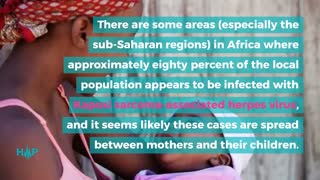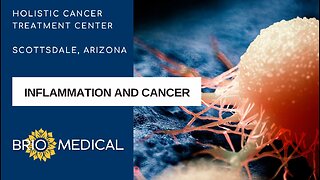Kimchi and H. pylori's Connection to Stomach Cancer
https://www.infocancers.com/
For decades, Japan is at the longest life expectancy in the world, while spending just a fraction on healthcare compared to other high income countries. This longevity has been attributed in part to Japanese dietary patterns, which are thought to have contributed to their comparatively low rates of coronary artery disease.
Japan has historically had amongst the lowest rates of colon cancer, breast cancer, ovarian cancer, prostate cancer, bladder and blood cancers. Japan, however, has among the highest rates of stomach cancer. Yes, Japanese men may have had seven times less prostate cancer than Americans, but got six times more stomach cancer. Is there some Achilles heel in the Japanese diet?
One of the first theories proposed in the 1970s was that it was the talc used to Polish white rice to give it a glossy Sheen. That was the case with ovarian cancer, which led to billions in damages against Johnson and Johnson's baby powder, as I detailed in the previous video. But that did not appear to be the case with stomach cancer. Is it just genetics?
No. Studies on Japanese migrants show that as they and their children Westernize their diets and lifestyles, their stomach cancer rates drop accordingly. Well, the most well established risk factor for stomach cancer is H pylori, bacteria that infects the lining of the stomach and causes the chronic inflammation that can lead to cancer. H pylori infection is considered a Group 1 carcinogen, indicating our highest level of certainty that it indeed causes cancer.
Korea and Japan have the highest rates of stomach cancer and among the highest incidence of H pylori infection. Case closed then, right? The mystery seemed to have been solved. But then came the African enigma. Countries such as Nigeria had even more H pylori, but only a fraction of Japan's stomach cancer rates. Then came the Indian enigma. H pylori is twice as prevalent in India than Japan.
Yet Indians get 10 times less stomach cancer. Obviously, H pylori alone can't explain Japan's epidemic. The most cases of stomach cancer are thought caused by H pylori. Most people with H pylori don't get cancer. H pylori is one of the most common human infections. It's been estimated that half of the world's adult population is infected with H pylori, yet half of us don't get stomach cancer.
There must be some kind of cofactor in countries like Korea and Japan that explains their elevated cancer rates. The inflammation caused by H pylori may just set the stage for cancer formation, increasing the susceptibility of the stomach lining to dietary carcinogens. But what's so carcinogenic about Korean and Japanese diets? Studies that have compared the dietary components of different Asian populations with similar H pylori rates but dramatically different stomach cancer rates.
Have suggested preserved salted foods, both fish and vegetables, as the culprits. Fresh vegetables and fruits, on the other hand, were associated with an 85% reduction in stomach cancer rods, whereas consumption of fresh fish doesn't appear associated with stomach cancer either way.
Or a view of 60 Studies found that the assumption of pickled foods was associated with significantly higher rates of stomach cancer, the more so in Korea than Japan, perhaps because per capita Korean consumption of salt fermented vegetables like kimchi is five day times greater. You can't know for sure, though, until you put it to the test. Pickled vegetable extracts can cause DNA damage in cells in a Petri dish, but what about in people?
Researchers in Vancouver fed people 30 ounces of Fuku Genzuke assorted vegetables pickled in soy sauce or pickled cucumbers over three day. Biopsies taken from their stomach lining before the experiment started were normal, as were the biopsies taken after eating fresh carrots or cucumbers. But after just a few days of consuming pickled vegetables, moderate to severe tissue abnormalities were found suggestive of stomach irritation.
The consumption of non fermented soy foods such as tofu, edamame and soy milk is linked to a lower risk of stomach cancer in Japan, whereas no association was found with fermented soy foods, even highly salted miso. The protection afforded by soy foods was attributed to the antiinflammatory and antioxidant effects of the isoflavone compounds and soybeans. Salt itself isn't considered a direct carcinogen, but it may damage the stomach lining.
Thin the protective mucus layer, enhance H pylori colonization, enhance the penetration of carcinogens, and enhance the formation of carcinogens. Even moderately high salt intake is associated with significantly increased risk of stomach cancer, though in Japan this effect may be limited to those already suffering from H pylori induced inflammation. H pylori is typically treated with a cocktail of multiple antibiotics.
Is there any way to eradicate it naturally through diet? We'll find out next.
-
 4:35
4:35
drbryanrade
10 months agoGERD and gastritis that's not related to H. pylori?
17 -
 1:15
1:15
Healthprep
4 years agoCauses And Risk Factors Of Kaposi's Sarcoma
11.5K -
 1:25
1:25
Healthprep
4 years agoSerious Warning Signs Of Stomach Cancer
17.9K -
 11:15
11:15
EnergyTherapy
6 months ago9. The Therapy for Stomach Cancer
29 -
 15:41
15:41
Let's Talk IBD
2 years agoDid H. Pylori Cause All the Pain? | *Showing Pics of My Intestines!* | Let's Talk IBD
5 -
 6:41
6:41
Pam Popper
8 months agoAcid, Alkaline, and Cancer
2.96K -
 8:48
8:48
BrioMedical
8 months agoRelationship Between Cancer and Inflammation | Dr. Walter Kim
42 -
 11:43
11:43
Health Bites
5 months agoStomach pains, indigestion, HPylori, OHH MYY!
34 -
 17:24
17:24
KnoxDocs
1 year agoKAM Doc Talk - Gastroparesis
35 -
 1:18:25
1:18:25
Right2Freedom
1 year agoCancer and Spike Protein: What's The Link?
207